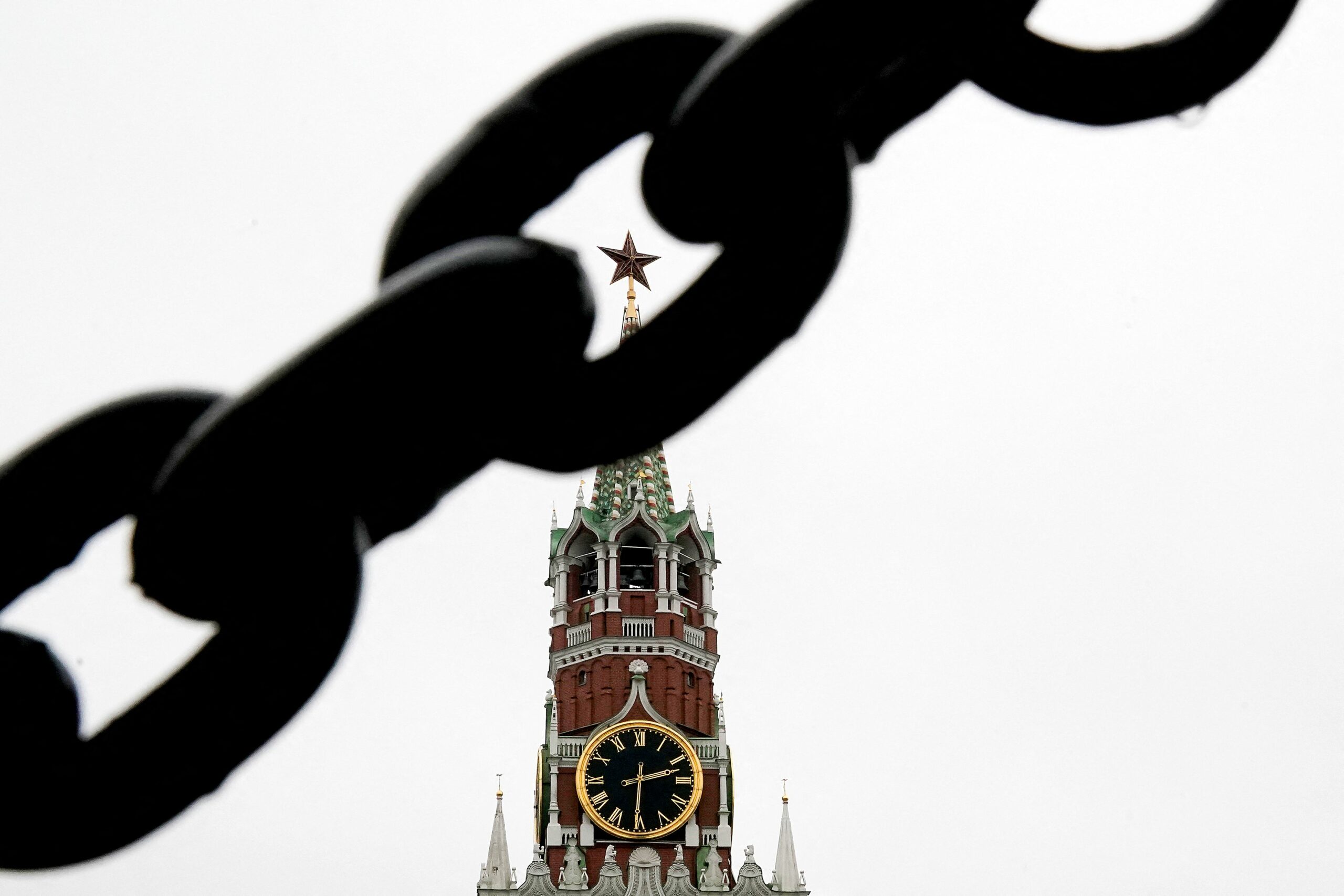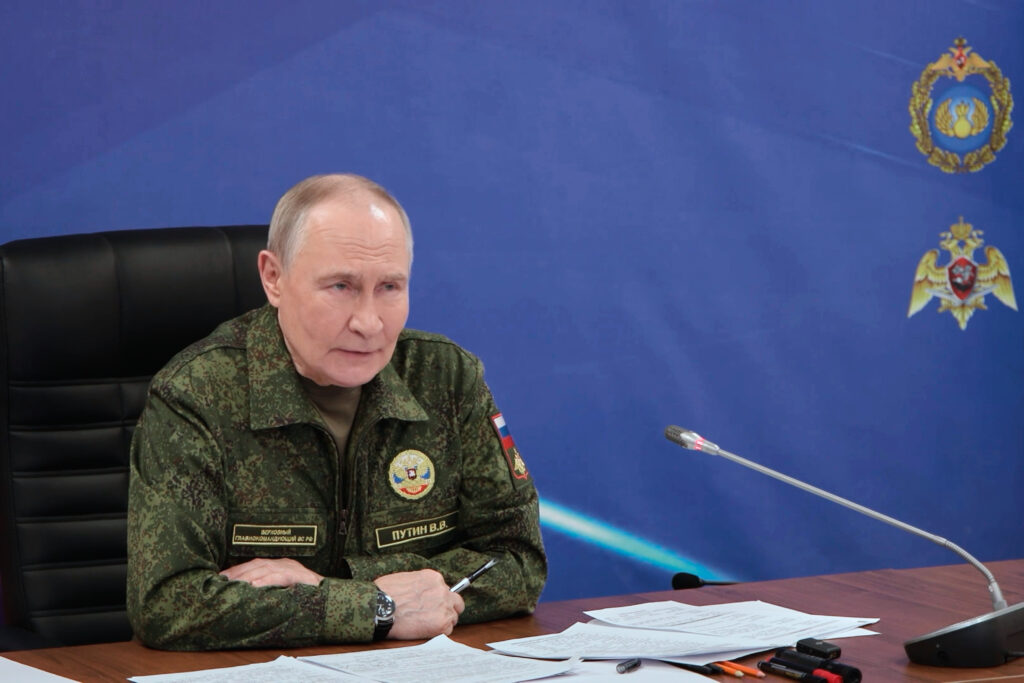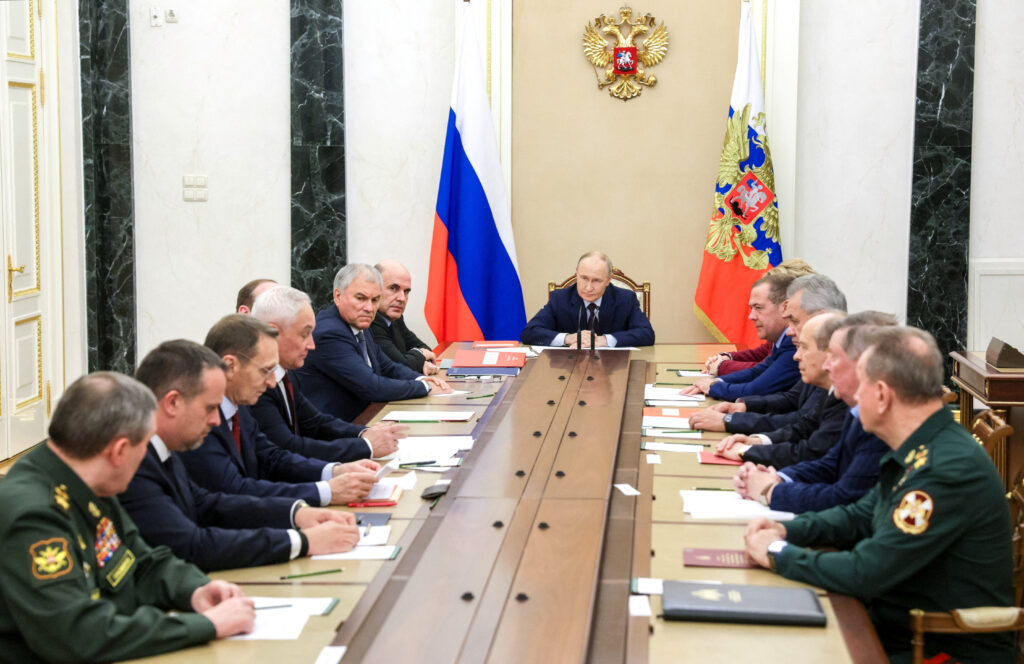A curious thing happened in Russia in May. Amid the reshuffles and corruption probes after Vladimir Putin swore in for a fifth presidential term, three officials were appointed governors to head the Kemerovo, Kursk and Tula Regions, replacing predecessors who had become ministers in the federal government. So far, so normal. Yet what made these appointments so curious is that the newly appointed governors — all officials with local roots — replaced outsider technocrats. This was a clear break with the Kremlin’s personnel policy of most of the past decade. Previously, wherever possible, the Kremlin had worked to see outsiders gradually but steadily replace local officials. These years of centrally imposed swaps had given rise to a somewhat disparaging Byzantine nickname in the media and academia for this class of official — they became known as the «Varangians.» So when three locals replaced three outsiders at once this summer, it was something that had not happened since the turbulent 2018 regional elections. Back then, Kremlin-backed gubernatorial candidates lost the vote in four regions; ever since, outsiders had been replaced either by other outsiders or what political scientist Alexander Kynev, who published a deeper study of the emergence of the policy in post-Soviet Russia, called «federalized locals» (officials who had ties to the regions they were entrusted to lead, but whose professional socialization took place in Moscow).
Is this a sign of things changing?
The Purpose of Varangians
The objective of appointing outsider governors was essentially to dismantle existing regional elite coalitions that could potentially challenge the Kremlin and keep new ones from emerging. These outsiders would work to fend off what the Kremlin saw as a distant threat of disobedience, even separatism. Another purpose was to «improve governance» of the affected regions, which in the Kremlin’s vocabulary meant ensuring federally mandated policies are carried out and protest potentials are lowered. The ideal figure of a newly appointed governor was a person with interchangeable skills, coming from or heading to a federal agency, with efficiency and loyalty on his mind and no roots in the region. More than 50 alumni of the School of Governors, an initiative of Presidential Administration deputy head Sergey Kirienko were appointed governors, and many more received appointments elsewhere.
Appointments followed similar patterns. Dismissed predecessors often got a sinecure appointment to the Federation Council (a fifth of governors dismissed over the past five years ended up in the upper chamber). The new governor would then often make subtle changes to his predecessor’s existing team, reshuffling only a couple of subordinates or their roles. Once the coronation was in the bag — most often in the form of a more or less tightly controlled gubernatorial election — the «Varangian» governor would move his own team in, usually from one specific former posting; the speed and the means would depend on how entrenched the predecessor’s team is.
In the Belgorod Region, for example, Vyacheslav Gladkov, a Rosatom protégé and the Russia-appointed deputy governor of the occupied Sevastopol, was appointed in November 2020 to replace Yevgeny Savchenko, then Russia’s longest-serving governor (in office since 1993) who had treated the region as a personal fiefdom. Gladkov has actively promoted himself as a telegenic problem-solver (among governors, his Telegram channel is second only to that of Ramzan Kadyrov, Chechnya’s despotic leader), but he had a long laundry list. First, he duly appointed Savchenko to the Federation Council (he was dismissed four years later). But in the first couple of months, personnel changes were minimal: Gladkov simply reshuffled portfolios and even appointed a Savchenko-era official as his first deputy. The first appointments to the regional government from Gladkov’s Sevastopol team took place seven — eight months into his governorship, but these were still relatively small adjustments. More substantial changes began shortly after he was formally elected in September 2021 with the de facto dismissal of the mayor of Belgorod (a former deputy governor) and further dismissals in the regional government. Scandals and seismic changes lent a hand: a bizarre scandal centering on a religious sect, in which Savchenko himself played a prominent role, cost several influential power brokers in the regional legislature their jobs; Russia’s war in Ukraine, which made Belgorod a battered border region, allowed Gladkov to stand up more forcefully to local elites, with influential businessmen and officials connected to Savchenko and the food industry (including the former mayor of Stary Oskol) getting dismissed or arrested with the help of the security services, followed by the ousting of further officials overseeing local industries.
Other «Varangian» governors followed a similar pattern. Lipetsk’s Igor Artamonov brought in people from Sber; Irkutsk’s Igor Kobzev imported officials from the Ministry of Emergency Situations and the Voronezh Region; Yaroslavl’s Mikhail Evraev transplanted cadres from the Federal Antimonopoly Service. Some — such as Sergey Tsivilyov, Russia’s recently appointed minister for energy, who headed the coal-rich Kemerovo Region in 2018−24, had to make more compromises with entrenched local elites, but in the end — with some federal help — even he moved against these interest groups.
The push to appoint «Varangians» also coincided with fiscal centralization: the federal center shortening the leash on regional governments by introducing stricter fiscal rules and key performance indicators (KPIs), replacing market loans with cheaper budgetary loans (and now moving on to forgiving some of these); as well as political centralization where initially the appointment of deputy governors in charge of domestic policy was controlled by the federal government and then, following a 2021 reform, the number of key ministers as well.
A turnaround?
It is impossible to draw far-reaching conclusions from only three appointments.
Regions with an elevated protest potential are still regarded as suspect and often get outsider governors or, more recently, electronic voting forced upon them, albeit here the new leaders have a clear mandate. Dmitry Demeshin, the recently appointed head of the Khabarovsk Territory, for instance, has set out to castigate local officials quite like he had in his previous job as deputy chief prosecutor in charge of the Siberian Federal District, and appears to be forming a team of former Prosecution officials.
There is also still an ongoing attempt to homogenize regional and local officialdom. The first mayoral appointments from alumni of the «School of Mayors», a program similar to the «School of Governors,» have recently taken place in Lipetsk and Astrakhan.
However, it is also increasingly visible that the government’s centralization efforts create, so far, minor but avoidable conflicts with local elites. This was seen in recent pushbacks against municipal mergers in regions as diverse as the Altai Territory, the Pskov, Kostroma or the Irkutsk Region; or the conflicts triggered by the abolishment of direct mayoral elections in cities; or how quickly the team of Andrey Turchak, a politician of federal significance recently appointed to head the Altai Republic, had to pull back from suggesting that he would merge the region with the neighboring Altai Territory. Arguably, restricting pluralism and traditional channels of feedback in favor of digital surveillance and collection of complaints — a point where the interests of the government and the security services align — could also make local and regional governments less proactive in preventing bad policy outcomes or even security risks, (whether or not this is already happening needs further research). Further friction is on the horizon as the government is moving to limit the proportion of budgetary expenditures that regions can spend on development-focused public-private-partnership deals, and is making room for aging federal officials in the Federation Council, where so far many regional grandees have ended up in lieu of retiring. Thus, it would seem logical for the government to correct its course and seek to involve local elites more in regional governance.
One could also argue that appointing local governors after several years of relentless centralization of political and fiscal resources is not a big risk. Besides, all three locals worked closely with their Varangian predecessors who in turn now received federal appointments, maintaining their influence. (Similarly, the predecessors of some of these new ministers were simply promoted within the government and will continue to supervise their portfolios.)
Simply put, the policy of replacing locals with Varangians may simply have run its course and reached its natural limits. It is also telling, however, what some of these limits seem to be. Before the June appointments, 47 of Russia’s 83 regions were led by Varangian governors, so theoretically there would still be room to dismiss locals. But the Kremlin has a different kind of deal with most «republics with an ethnic character», such as Tuva, Tatarstan or Chechnya, where local leaders are firmly in charge of political and sometimes even economic resources, but deliver resounding electoral victories when the Kremlin wants them to. It is not a coincidence that online voting, which allows the Kremlin to rely less on the active cooperation of local officials, has not been introduced in most of these regions. Some wealthier industrialized regions with major business players also have their own internal mechanisms of allocating positions, as shown by the musical chairs of reshuffling mayoral seats in the energy-rich Tyumen Region and its autonomous districts earlier this summer.
And the personalist element is strongly present at the other end of the power vertical as well. In June Alexey Dyumin, the former governor of the Tula Region — and Vladimir Putin’s former chief security guard — was appointed Secretary of the State Council, a body with increasing importance that acts as a channel of communication and deliberation between the Kremlin and the regions before formal decision-making processes. The powers attached to Dyumin’s position are deliberately vague, but arguably the secretary’s personal closeness to the president could elevate the profile of the whole institution, as it happened with the Security Council when Nikolay Patrushev was its secretary. Dyumin promptly appointed two of his former underlings, the interim governors of the Tula and the Samara Regions, to head committees (for sports and industry, respectively) in the Council, even before they were formally elected.
Whether it was triggered by changing priorities in a now highly centralized system or the Kremlin’s realization of the limits of its personnel policy, it appears that the era of corporate-style interchangeable cadres as the sole idealized model of public administration officials might be over. The attempt to make Russia’s nascent digital authoritarianism run itself, is, yet again, coming up against the stiffness of the personalist autocracy that the country is increasingly becoming.










